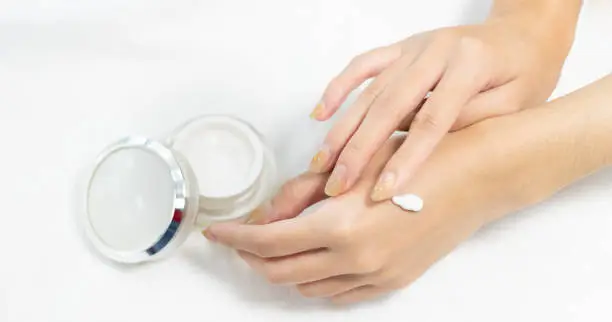How to get the best fairness cream
Fairness creams are skincare products designed to lighten the skin tone, reduce pigmentation, and give a brighter, more even complexion. However, it’s essential to approach fairness creams with a clear understanding of what they can and cannot do. Fairness creams generally work by inhibiting melanin production or using exfoliating agents to give the skin a radiant glow. But it’s important to note that these creams cannot drastically alter your skin tone, especially when it comes to genetics and your natural complexion.
To get the best fairness cream, it’s crucial to know your skin type, the ingredients that work best for you, and how to incorporate the cream into your skincare routine.
What to Know Before Choosing a Fairness Cream
Before purchasing any fairness cream, it’s important to know a few key things that will help you make the right decision:
- Skin Type: Your skin type—whether oily, dry, combination, or sensitive—will determine the type of fairness cream that is best suited for you. A cream that works well for oily skin may not be ideal for dry skin.
- Skin Concerns: Do you have dark spots, acne scars, or uneven skin tone? If so, you’ll want to focus on fairness creams that address pigmentation and hyperpigmentation.
- Ingredients: Certain ingredients can be harsh for sensitive skin, while others might be too light for oily skin. Understanding which ingredients are best for your skin is crucial.
- Brand and Product Reputation: Check customer reviews and expert recommendations to ensure the fairness cream is effective and safe.
- SPF Protection: Skin damage caused by the sun can worsen pigmentation. Therefore, look for fairness creams with built-in sun protection (SPF).
How Fairness Creams Work: The Science Behind Them
Fairness creams typically work by targeting specific causes of skin pigmentation. Understanding how these creams work can help you choose the best one:
- Melanin Reduction: Melanin is the pigment responsible for skin color. Most fairness creams inhibit melanin production, which can lighten dark spots or give your skin a brighter look.
- Exfoliation: Many fairness creams contain exfoliating agents like AHAs (Alpha Hydroxy Acids) or beta-hydroxy acids (BHAs), which help remove dead skin cells, revealing fresh and brighter skin.
- Hydration: Well-hydrated Skin tends to look brighter and healthier. Hydrating ingredients like hyaluronic acid and glycerin in fairness creams provide moisture and enhance the skin’s radiance.
- Skin Brighteners: Certain brightening agents, such as Vitamin C, licorice extract, and niacinamide, help reduce pigmentation and even out skin tone.
Key Ingredients to Look for in the Best Fairness Cream
When choosing a fairness cream, the active ingredients are crucial for determining how effective the cream will be. Below are the top ingredients that you should look for in fairness creams:
Vitamin C
Vitamin C is one of the most powerful ingredients for brightening skin. It helps to reduce dark spots, pigmentation, and hyperpigmentation while promoting collagen production. It also protects against free radical damage, which can accelerate skin aging.
Niacinamide (Vitamin B3)
Niacinamide is a highly effective brightening agent that helps to even out skin tone by reducing melanin production. It also helps to strengthen the skin barrier, reduce redness, and minimize the appearance of pores.
Licorice Extract
Licorice is a natural skin-lightening agent that can help brighten the skin and reduce dark spots. It works by inhibiting the production of tyrosinase, the enzyme responsible for melanin production.
Alpha Hydroxy Acids (AHAs)
AHAs, such as glycolic acid and lactic acid, exfoliate the skin by removing dead skin cells. This results in fresher, more radiant skin and also helps with the fading of dark spots and pigmentation.
Retinoids (Vitamin A)
Retinoids are known for their ability to speed up cell turnover, which can help reduce pigmentation and improve skin texture. They can also reduce fine lines and wrinkles, making your skin appear younger and more vibrant.
Arbutin
Arbutin is a natural skin-brightening agent that inhibits melanin production, making it effective for lightening dark spots and hyperpigmentation.
Hyaluronic Acid
Hyaluronic acid is crucial for skin hydration. It helps retain moisture, making the skin appear plump, smooth, and healthy. Well-hydrated skin also reflects light better, which enhances its radiance.
How to Choose the Best Fairness Cream for Your Skin Type

Now that you know which ingredients are key, it’s important to match the product to your skin type and concerns. Here’s how you can choose the best fairness cream based on your skin type:
For Oily Skin:
Look for non-comedogenic fairness creams that won’t clog your pores. Gel-based formulas with lightweight ingredients like Vitamin C, niacinamide, and glycolic acid are ideal for oily skin. Opt for products with oil-control properties and avoid heavy creams that can make your skin greasy.
For Dry Skin:
If you have dry skin, you’ll want a fairness cream that provides deep hydration. Look for creams with ingredients like hyaluronic acid, glycerin, and ceramides, which can lock in moisture. Creams with a rich texture are suitable for dry skin, but make sure they don’t contain alcohol, which can strip moisture.
For Sensitive Skin:
Sensitive skin requires products with gentle and calming ingredients. Look for fairness creams with soothing agents like aloe vera, chamomile, or licorice extract. Avoid products with harsh chemicals, parabens, or artificial fragrances that can irritate your skin.
For Combination Skin:
Combination skin requires a balanced approach. Look for fairness creams with a lightweight formula that can hydrate dry areas without making the oily zones greasy. Ingredients like niacinamide work well across different skin types and can help balance the skin’s oil production.
How to Apply Fairness Cream for Best Results
Proper application is key to achieving the best results from your fairness cream. Here’s how to apply your fairness cream effectively:
- Step 1: Cleanse: Always start with a gentle cleanser to remove dirt, oil, and makeup. This prepares your skin to absorb the cream better.
- Step 2: Tone: Use a toner to balance your skin’s pH levels and tighten pores.
- Step 3: Apply Serum (Optional): If you use a serum with Vitamin C or other active ingredients, apply it before the fairness cream.
- Step 4: Apply Fairness Cream: Take a small amount of cream and apply it evenly to your face and neck. Use gentle upward strokes to avoid stretching the skin.
- Step 5: Use Sunscreen: Sunscreen is essential to protect your skin from harmful UV rays, which can worsen pigmentation. Apply sunscreen every morning, even if your fairness cream contains SPF.
Common Mistakes to Avoid When Using Fairness Creams
To get the best results from fairness creams, avoid these common mistakes:
- Not using sunscreen: Sun exposure can undo the effects of fairness creams, so always use sunscreen during the day.
- Overusing products: Excessive use of fairness creams can irritate your skin. Follow the instructions on the product label for best results.
- Ignoring patch tests: Always perform a patch test before applying any new product to your face to ensure you don’t have an allergic reaction.
- Expecting instant results: Achieving radiant skin takes time. Be patient and consistent with your skincare routine.
Conclusion
Finding the best fairness cream is about choosing the right product based on your skin type, concerns, and the key ingredients that work for you. Keep in mind that fairness creams are not miracle workers but can help enhance your skin’s radiance, reduce pigmentation, and give you a brighter, even skin tone. By understanding your skin’s needs and following a proper skincare routine, you can achieve and maintain fair, glowing skin for the long term.
FAQ: How to Get the Best Fairness Cream
Can fairness creams change my natural skin color? A1: No, fairness creams cannot permanently change your natural skin color. They can only help reduce pigmentation, and dark spots, and make your skin appear brighter and more even-toned.
How long should I use a fairness cream to see results? A2: Results can vary, but typically you may start seeing visible improvements after 2-4 weeks of consistent use. For best results, continue using the cream and follow a complete skincare routine.
Are fairness creams safe for sensitive skin? A3: Many fairness creams contain harsh chemicals, but there are gentler formulations available for sensitive skin. Look for products with soothing ingredients and do a patch test to avoid irritation.
Can fairness creams be used during the day? A4: Yes, many fairness creams can be used during the day, but it’s important to apply sunscreen afterward, as UV exposure can worsen pigmentation.
Are fairness creams suitable for all skin types? A5: Yes, but it’s important to choose a fairness cream that matches your specific skin type (oily, dry, sensitive, or combination).
Can I use a fairness cream with other skincare products? A6: Yes, you can use a fairness cream in combination with other products like serums and moisturizers. Just ensure that the products work well together and do not cause irritation.

